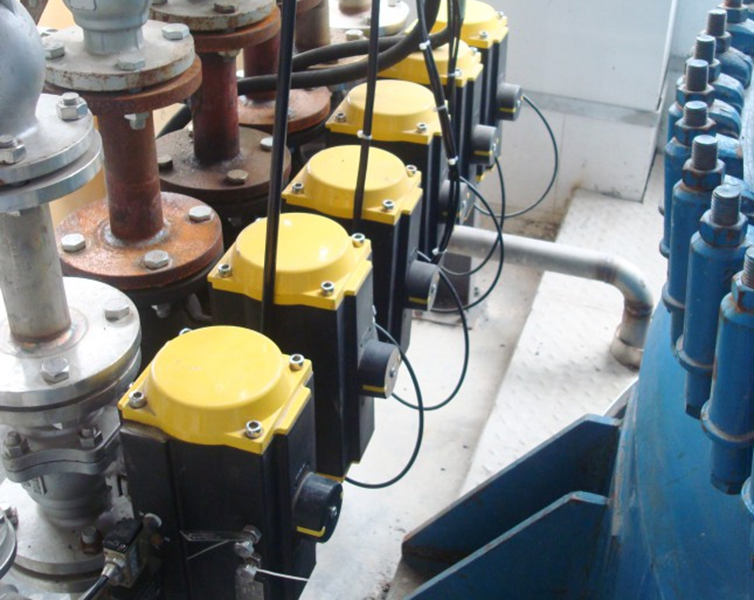What is a pneumatic actuator?
By definition, a pneumatic actuator is a device that converts energy typically in the form of compressed air into mechanical motion. Within the industry, pneumatic actuators are recognised by several different names including pneumatic cylinders, air cylinders, and air actuators; all of which are one and the same.
Consisting of a piston, cylinder, and valves or ports, a pneumatic actuator can convert energy into linear or rotary mechanical motions. This is dependent on whether the application is using a pneumatic rotary actuator or a linear actuator.
Linear actuators are well suited for fitting to angle seat control valves built for high temperature and steam applications, whereas the pneumatic rotary actuators are better suited for fitting to quarter-turn valves depending on the specification of the application.
How a pneumatic actuator works?
Pneumatic actuators are reliant on the presence of some form of pressurised gas or compressed air entering a chamber where pressure is built up. Once this exceeds the required pressure levels in contrast to the atmospheric pressure outside of the chamber, it creates a controlled kinetic movement of a piston or gear which can be directed in either a straight or circular mechanical motion.
Pneumatic actuators are well suited to a wide variety of application types, serving across many different industry areas. Some of the most common applications include :
• Combustible automobile engines
• Air compressors
• Packaging & production machinery
• Railway application
Advantages of using pneumatic actuators over other alternatives
Most of the benefits of choosing pneumatic actuators over alternative actuators, such as electric ones, boil down to the reliability of the devices, as well as the safety aspects. The fact that they do not require ignition or electricity makes these devices highly sought after where parking and combustion are not tolerated. This is because a pneumatic actuator can store compressed air and use it again efficiently without the risk of fire.
Pneumatic actuators are also extremely durable and can, therefore, reduce the costs required to maintain its performance. Less maintenance means a longer product lifecycle and therefore greater output.



